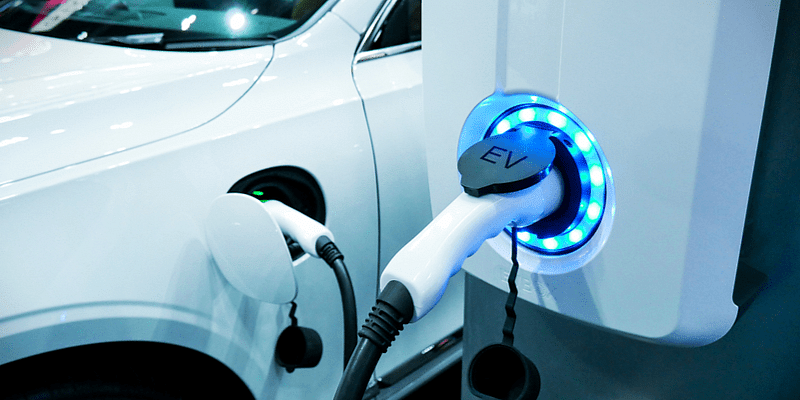India has been evolving every passing day across several verticals, and the electric mobility market is one of the industries catching pace gradually.
With pressing concerns of environmental issues surfacing, the giants in the sector are stepping forward to curb the issues and eradicate fuel dependency by adopting eco-friendly technologies.
Electrifying mobility, electric vehicles are playing a crucial role in saving the planet.
People are becoming aware of the modern-day solutions to eliminate the new-day issues of pollution index and environmental cover degradation. They are resorting to initiatives that are making a difference.
With the frenzy of bikes and owning a two-wheeler kicking in and levelling up by the day, individuals are opting for electric mobility solutions that quash fuel dependency and contributing to the market growing multifold.
The support of FAME
The Indian government is also playing its part in encouraging people to adopt electric mobility. It launched the FAME scheme — Faster Adoption and Manufacturing of Electric Vehicles — in India in 2015.
The scheme entailed several benefits for EV owners with the highlight being providing subsidies on the purchase of new EVs and encouraging people to engage intensely in the EV market.
The Department of Heavy Industry administered the scheme, and thanks to the government, it is now extended to 2024.
Talking numbers, the FAME initiative offers 50 percent more subsidy at Rs 15,000 per kWh on electric bikes and scooters in India.
Making a significant impact by inspiring people to be independent of fuels, the scheme is actively working on bringing down the price difference between fuel-driven vehicles and EVs. It is further altering people’s perspectives and motivating them to opt for e-vehicles.
Mobility turns flexible
Electric mobility is turning tables in society and getting the support of authorities with different programmes and schemes. Along with encouraging environment-friendly solutions, the electric two-wheeler segment has notched up the game and advanced its battery technologies over time.
With long-range batteries in less charging hours, the industry is putting its best foot forward. Understanding the need of the hour and launching features to match customers’ expectations, the solutions independent of fuel and its emission are exhibiting flexibility across every vertical.
From battery progression and enhancement, swapping networks (for 3W and 2W) to EV ownership options and payment gateways, the market is growing immensely.
Overall transformation is the key
Owing credit to electric two-wheelers and eco-friendly technology — which is obliterating fuel-dependency — the Indian market is striving for new skies of success. It is not only changing the face of the EV sector but also transforming the landscape of the automobile industry as a whole.
The EV segment has further given rise to Mobility-as-a-Service (MaaS). Expediting the integration of diverse forms of transport services and converging them into a single mobility service accessible on customers’ demand is another key benefit of bringing EV into the bigger picture.
Smart cities are also proactively supporting the initiative and allowing the introduction of EVs as a prime mode of travel and transport. With shared mobility coming into play and MaaS catalysing the growth of the sector, it is expected for the industry to see a boom in profitability in the coming years.
Other solutions, including ride-sharing, car-sharing, vehicle subscription or lease, scooter-sharing, bike-sharing, and public transportation, can also be electrified to reduce dependency on fuel and proliferate the fuel-independent vertical that encourages shared mobility.
Urban and connected mobility on the rise
Cities are growing by the day, and tech reform is catching up in the urban areas. To align with the development, it has become imperative for the automobile industry to automate itself with the latest advancement and establish newer, smarter systems.
Urban transportation requires well-thought strategies to take the lead and intensify customer engagement. It requires electrifying mobility modes and laying the precedent for a new public transport system using electric vehicles in government fleets to encourage a sustainable way of commuting.
Lastly, it integrates the transportation model in smart cities. With increasing population and environmental concerns, it has become an unsaid requirement to draw in cities and create new foundations of transport in the urban regions.
The giants in the EV market are working with the automobile industry relentlessly round the clock to introduce new mobility options and encourage shared transportation in India.
By electrifying two-wheelers and launching newer models with improved features, battery quality, and life, the brands are taking accountability for the environment and showcasing that these EVs are the long-term solution in eradicating fuel dependency, preserving the organic cover of the earth.
Working on establishing a fuel-free and environment-friendly present and future, the EV market is proving that there truly is “No planet B” when it comes to our land.
(Disclaimer: The views and opinions expressed in this article are those of the author and do not necessarily reflect the views of YourStory.)










